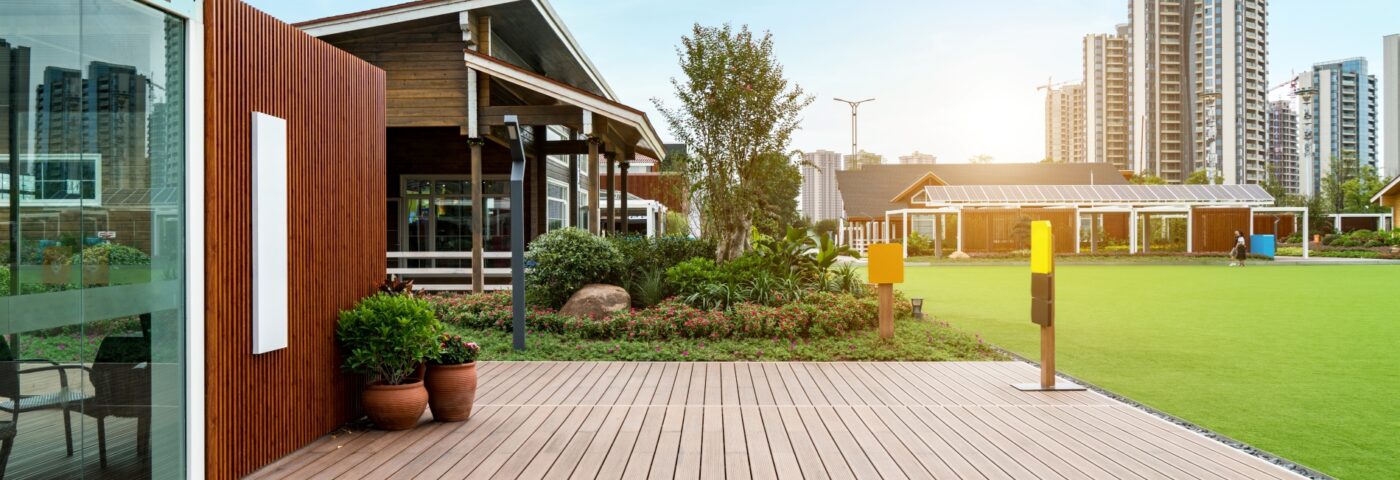Key Highlights
- There is a 38% increase in the number of sustainability certificates in residential developments.
- According to NatWest and S&P Global research, 75% of UK renters are expecting an increase in their rental expenses and want landowners to decarbonise their properties.
- On 'Built Environment Day' of COP28, the UK Green Building Council released new insights that highlight the industry's notable deviation from the UK's net-zero ambitions.
- In the UK, landlords are also required to adhere to Energy Performance Certificate (EPC) rating standards. Landowners should carry out different assessments to improve the EPC ratings of their rental properties.
Renewable energy adoption is rapidly gaining traction, and the built environment is increasingly emerging as a central hub for the generation of clean, sustainable energy.
Statistics show a significant increase in the number of residential developments gaining sustainability certificates, from 12% in 2010 to 38% now. This rising trend is projected to continue as the industry strives to achieve lofty net-zero goals by 2050. NatWest and S&P Global also indicate that 75% of UK renters anticipate an increase in rental expenses and want landowners to improve the sustainability of their buildings.
“Cost and disruption continue to be major barriers for homeowners looking to make sustainable changes to their homes… We recently introduced the Home Energy Hub to help to solve that problem for homeowners, by making it faster to understand, commission and pay for the work they might need.”
Lloyd Cochrane, Head of Mortgages at NatWest
Climate change, legislation, and reputation have also contributed to the importance of sustainability in property construction. Despite initial constraints, the act of constructing future-proof green buildings unveils new opportunities.
What is ‘Built Environment’ decarbonisation?
New insights from the UK Green Building Council during COP28's 'Built Environment Day' underscore the industry's significant deviance from the UK's net-zero targets. Even though the built environment sector is a major emitter, it also has a lot of potential to have a beneficial influence, from improving resilience to generating jobs and advancing equity.
A person's home, workplace, factory, and transportation system are all impacted by the built environment ecosystem, which is made up of real estate and infrastructure. Approximately 25% of global greenhouse gas (GHG) emissions are also attributable to it.
Achieving the target in the Paris Agreement and limiting global warming to 1.5°C over pre-industrial levels will require built environment emissions to be cut in half by 2030 and completely decarbonised by 2050.
By 2030, it is imperative to industrialise more decarbonisation solutions to guarantee:
-cost-effectiveness with a focus on quality
-cost-efficiency
-timely market deployment
However, as global decarbonisation initiatives pick up steam, early adopters will stand to gain from new and lucrative commercial opportunities.
Join Dcarbonise 2024 in Shaping a Sustainable Future
Dcarbonise is Scotland's only exhibition and conference focused on reducing carbon emissions from the built environment and transportation systems. Together, let's redefine the possibilities for a sustainable future.
How is the ‘Built Environment’ moving towards sustainability and decarbonisation?
The built environment has undergone a notable transformation in the past few years, moving its assets towards sustainability and decarbonising. This change is a result of a greater understanding of the effects on the environment and a group commitment to reduce carbon emissions.
Some of the detailed practices that the property owners follow are the following:
• Retrofitting and technology innovation
• Assessment of existing properties
• Conservation and management of water
• Promote energy efficiency
• Usage of sustainable building materials
As mentioned above, the decarbonisation of construction materials will be a good step towards sustainability. For many years to come, traditional building materials like cement, steel, aluminium, glass, and petroleum-based polymers will be widely used. Because of their extensive use and rising demand, these materials and processes must be decarbonised, requiring unique approaches.
While waiting for the creation and implementation of pertinent certifications and standards, it may be possible to upgrade "transitional" materials like earth-based masonry products, such as burned bricks and adobe blocks, which have lower emissions and could replace high-carbon alternatives.
There are also Energy Performance Certificate (EPC) rating requirements in the UK, which the landlords follow. In order to raise their rental homes' EPC ratings, landowners should perform the following evaluations:
• Green insulation installation
• Upgrade to double or triple-glazed windows
• Usage of ground- or air-source heat pumps
• Utilisation of LED lighting
• Solar panels or battery installment
Aside from that, landlords can also foster a sustainable mindset in their tenants. Not only that, but property owners can also implement proper waste management and provide sustainable amenities, which will minimise the harm to the environment.
Empowering sustainability with Built Environment decarbonisation
Since the real estate industry continues to be one of the major contributors to global carbon emissions, landowners who are leading by example and championing decarbonisation and sustainability with their tenants will ultimately aid in the community's overall sustainability.
Participating in the decarbonisation of the built environment is crucial because it will benefit the real estate sector in more ways than one, including financially, legally, and in terms of reputation. These actions will benefit the environment and contribute to making the area a healthier place to live.

